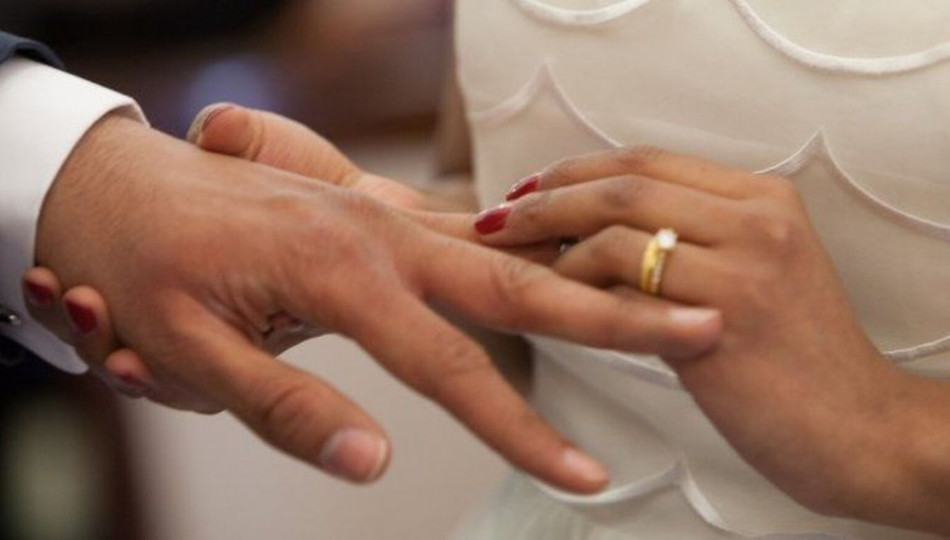

Can you hear the wedding bells? marrying a Polish citizen
Love is all around us, although sometimes life gets in the way. Two hearts skipping a beat, a romantic proposal and plans for your future together – but what about formalities and law? Read on if you are a foreigner marrying a Polish national.
Marry me in Vegas
… or anywhere outside Poland, for that matter. If you are a foreigner and your better half is Polish, you are free to marry wherever you want to in the world. However, a Pole needs to visit their local registry office and ask for a special certificate, which states that there is no impediment to marriage pursuant to the marriage with foreigners abroad. You need to pay a stamp duty (PLN 38) and your document should be issued on the spot. Now go and get married!
Let the whole world know
But if you prefer to keep it private, at least inform your Polish registry office. If you want your wedding to be officially recognised in the country, you need to look into some formalities. The Polish spouse should provide a marriage certificate, their husband’s or wife’s birth certificate and their own birth certificate (unless the case is being processed by the same registry office that have their birth record from years ago). All documents which are not in Polish should be translated. Good news is that the paperwork need not be delivered to a registry office in person – a family member can file it as well. The fee for the registration is PLN 50.
Another option is legalising your marriage through a Polish consulate abroad, but it is a more complex (the waiting period for your certificate is at least two months) and expensive path (the fee is much higher than in Poland).
Your big fat Polish wedding
You can also get married in Poland. Here church weddings are the most popular way of tying the knot, since they combine the traditional wedding ceremony with an easy registration done by priests in civil registry offices.[1] If your Polish fiancé insists on a church wedding and you are not religious yourself – you may encounter some obstacles. It is important to learn what the formal requirements are early in the process of getting married and try to discuss them with a clergyman beforehand. Do not worry though, everything is doable. Mixed couples of different faiths and backgrounds enjoy joint wedding ceremonies and it is becoming more and more common in Poland (the so-called interfaith marriages).
The registry office wedding ceremony lacks the religious element, but requires the same kind of legal formalities. In both cases, a foreigner will need their valid travel document (e.g. passport), birth certificate, Geneva passport (applicable only to individuals with a refugee status), Polish residence card (if applicable) and a special certificate of no impediment to marriage pursuant to the marriage with foreigners. All documents which are not in Polish ought to be translated.
Citizenship status
After the wedding, one of the most important issues is staying together and enjoying your time as a married couple, but what if your spouse is not a native of Poland? Getting a citizenship would solve this problem and many believe that a new passport is naturally acquired with the exchange of wedding vows. However, it is important to bear in mind that marriage does not guarantee that a person is granted a citizenship immediately. The process is longer and much more complex.
For EU nationals the case is a bit simpler. They are entitled to travel and work freely around the European Union up to three months, but even after this time it is not obligatory for them to apply for a residence permit if they are married to a Polish citizen. However, if a foreigner wishes to obtain a Polish citizenship in the future, they need to undergo the same process as non-EU nationals. In such cases, it is advisory to get a temporary residence permit and then apply for a permanent residence card in the future (precisely, after 2 years of a continuous stay in Poland). Then, after three years of staying in Poland as its permanent resident and three years of being married to a Polish citizen, a foreigner may apply for a full Polish citizenship.
Happily ever after
In many fairy tales a happy couple, after overcoming some obstacles, gets their happy ending and very often is awarded with a couple of delightful kids. According to the Polish law, any child born to a Polish national is automatically granted a Polish citizenship. This rule applies even when only one parent is Polish or if the child is born abroad. In the latter case, parents need to make sure that they register the baby's birth certificate, just like they need to register their marriage if it took place outside Poland.
Hopefully now you feel more confident about your transnational wedding and marriage! You can share your advice if you have already went through this process and want to encourage other couples to brave any legal storm. And they all lived happily ever after...
[1] Applicable only to: the Roman Catholic Church, the Orthodox Church, the Evangelical-Augsburg Church, the Evangelical and Reformed Church, the Methodist Church, the Baptist Church, the Seventh-Day Adventist Church, the Polish Catholic Church, Jewish Qahals, the Old Catholic Mariavite Church, the Pentecostal Church in Poland





